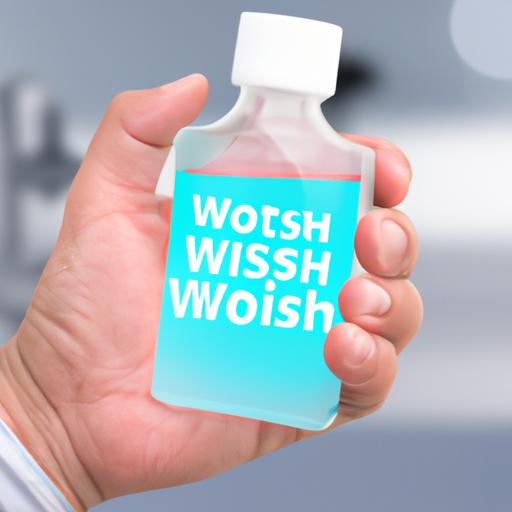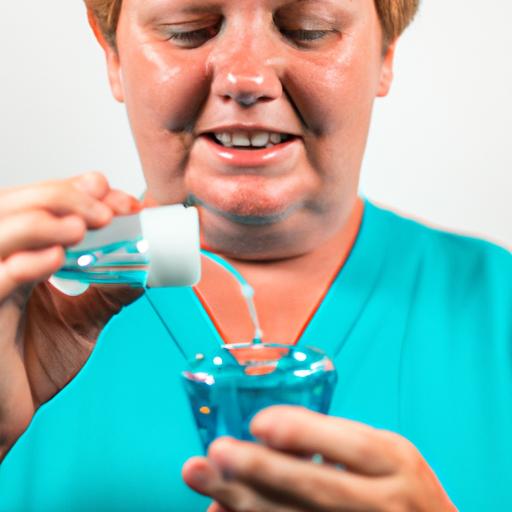
Discover the benefits of using Mouthwash for dental emergencies. Learn how it provides relief, prevents infection, and supports oral health.
When it comes to dental emergencies, swift action and proper care are crucial. Whether you’re dealing with a sudden toothache, a knocked-out tooth, or an oral injury, knowing how to handle these situations can make all the difference. One effective tool in your arsenal for managing dental emergencies is mouthwash. In this article, we’ll explore the benefits of using mouthwash in emergency situations and discuss the types of mouthwash that are ideal for providing immediate relief and promoting oral health.

Using mouthwash for dental emergencies can help prevent infection and provide relief.
Understanding the Benefits of Mouthwash for Dental Emergencies
Promoting Oral Hygiene and Preventing Infection
Maintaining proper oral hygiene is essential in emergency situations to prevent infection and further complications. Mouthwash acts as a powerful antiseptic that helps eliminate harmful bacteria, reducing the risk of infection. It reaches areas that may be difficult to clean with brushing alone, such as between teeth and along the gumline. By incorporating mouthwash into your emergency dental care routine, you can effectively cleanse your mouth and minimize the chances of infection.
Relieving Pain and Reducing Inflammation
Dental emergencies often come with pain and discomfort. Mouthwash can provide temporary relief by reducing inflammation and numbing the affected area. Certain mouthwashes contain analgesic properties that help alleviate pain, making them particularly useful in emergency situations. By swishing and gargling with mouthwash, you can experience a soothing sensation that eases the discomfort until you can seek professional dental care.
Assisting in the Healing Process and Supporting Oral Health
In addition to preventing infection and alleviating pain, mouthwash can also aid in the healing process. Some mouthwashes contain ingredients that promote tissue regeneration and support oral health. By incorporating mouthwash into your emergency dental care routine, you can create an optimal environment for healing damaged tissues, reducing the risk of complications, and supporting overall oral health.

Types of Mouthwash Ideal for Dental Emergencies
Antiseptic Mouthwash for Disinfection and Reducing Bacteria
Antiseptic mouthwashes contain active ingredients like chlorhexidine, which effectively kill bacteria and reduce the risk of infection. They are particularly useful in dental emergencies that involve open wounds or oral injuries. By using antiseptic mouthwash, you can disinfect the affected area, preventing the spread of harmful bacteria and promoting a clean environment for healing.
Fluoride Mouthwash for Strengthening Tooth Enamel and Preventing Decay
Fluoride mouthwashes are beneficial for both preventive and emergency dental care. Fluoride helps strengthen tooth enamel, making it more resistant to decay and cavities. Incorporating fluoride mouthwash into your dental emergency routine can provide added protection to your teeth, especially in situations where you may not be able to brush immediately. It acts as a shield, safeguarding your teeth until you can receive proper dental treatment.
Analgesic Mouthwash for Numbing Pain and Soothing Discomfort
When dental emergencies bring intense pain, analgesic mouthwashes can provide much-needed relief. These mouthwashes contain local anesthetics like benzocaine, which temporarily numb the affected area, reducing pain and discomfort. By using analgesic mouthwash, you can find temporary respite until you can access professional dental care.

Learn how to use mouthwash effectively during dental emergencies.
Proper Usage and Application of Mouthwash in Dental Emergencies
Step-by-Step Guide on How to Use Mouthwash Effectively
To maximize the benefits of mouthwash in dental emergencies, it’s essential to use it correctly. Follow these steps for effective usage:
- Pour the recommended amount of mouthwash into a cup.
- Take a small sip and swish the mouthwash around your mouth for 30-60 seconds.
- Gently gargle the mouthwash, ensuring it reaches the back of your throat.
- Spit the mouthwash out into the sink.
- Avoid rinsing your mouth with water immediately after using mouthwash to allow the active ingredients to continue their work.
Frequency and Duration of Mouthwash Rinses for Optimal Results
To achieve optimal results, it’s important to use mouthwash at the appropriate frequency and duration. Generally, using mouthwash twice a day, after brushing your teeth, is recommended for maintaining oral hygiene. In dental emergencies, you may choose to use mouthwash more frequently, especially if you are experiencing pain or have an open wound. However, it’s always advisable to consult with a dental professional for personalized recommendations.
Precautions and Considerations When Using Mouthwash in Emergency Situations
While mouthwash can be a valuable tool in dental emergencies, it’s essential to exercise caution and consider certain factors:
- Follow the instructions provided on the mouthwash bottle, including any age restrictions or limitations.
- Avoid swallowing mouthwash, as it may contain ingredients that are not meant to be ingested.
- If you experience any adverse reactions or allergies after using mouthwash, discontinue use and consult a dental professional.
- Remember that mouthwash is not a substitute for professional dental care. Seek prompt treatment from a dentist for severe or persistent dental emergencies.
Incorporating mouthwash into your dental emergency routine can provide immediate relief and support oral health. However, it’s important to remember that seeking professional dental care is crucial for comprehensive treatment and long-term oral well-being.
Remember, prevention is always better than cure. Regular dental check-ups, proper oral hygiene practices, and a healthy lifestyle can significantly reduce the likelihood of dental emergencies. By taking proactive measures, you can minimize the need for immediate dental intervention and ensure a healthy smile for years to come.
For more information on mouthwash and other oral care products, visit BestWaterFlosserHQ.





